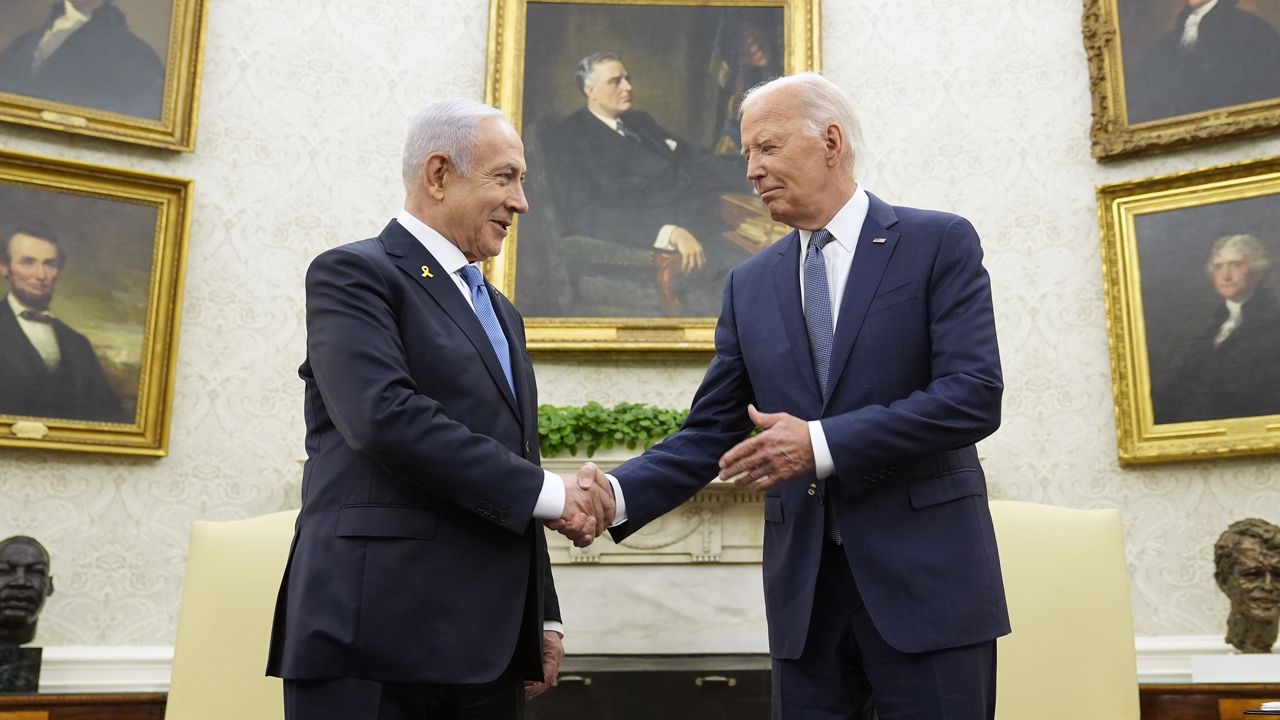Israel and Hamas are in agreement on the basic framework of the three-phase deal as it was presented by President Joe Biden in late May, according to senior Biden administration officials.
Top administration officials, including Biden, have repeatedly expressed cautious optimism for weeks that a deal is close to being sealed. And families of American hostage families said that President Joe Biden and Israeli Prime Minister Benjamin Netanyahu also left them with the sense during a White House meeting on Thursday that a deal could potentially arrive in the coming days.
But there are some serious sticking points between the two sides that still need to be resolved, the officials said.
Among the differences are Hamas’ demands that Israeli troops immediately leave the narrow strip of land between Gaza and Egypt known as the Philadelphi corridor, according to officials. Until May, Egypt had exercised full control of the roughly 9-mile strip.
Other kinks that still need to be worked out include differences on the number of Palestinian prisoners that would be released during the first phase and Israel’s push to establish a vetting system for displaced Palestinians returning to northern Gaza after a cease-fire is established, the officials said.
The news comes the same day Netanyahu met with former President Donald Trump, the Republican presidential candidate, at his Mar-a-Lago resort in Florida, and one day after the Israeli leader met with Biden and Vice President Kamala Harris, the likely Democratic nominee.
The meeting between Biden and Netanyahu the first time the pair have seen one another face-to-face since the president traveled to Tel Aviv and embraced the Israeli prime minister less than two weeks after Hamas’ Oct. 7, 2023, attack on Israel that left about 1,200 dead and sparked the now nine-month-old war.
This time, the White House meeting came during significantly different circumstances after months of tensions between the leaders as Israel’s retaliatory campaign in Gaza trekked on and following Biden’s decision just days ago to drop his bid for a second term and endorse his vice president, Kamala Harris.
Less than 24 hours before the pair’s meeting, Biden used the same room to address the American public about his decision to end his more than 50 years as an elected official.
In brief remarks to the press at the top of their meeting in the Oval Office, Netanyahu thanked Biden for “50 years of public service and 50 years of support for the state of Israel.”
“We’ve known each other for 40 years and you’ve known every Israeli prime minister for 50 years,” Netanyahu said to the president, adding that he was thanking Biden “as a proud Jewish Zionist to a proud Irish American Zionist.”
Harris emerged from her meeting with Netanyahu at the White House on Thursday declaring that she would not be “silent” on the “suffering” in Gaza.
“What has happened in Gaza over the past nine months is devastating – the images of dead children and desperate, hungry people fleeing for safety, sometimes displaced for the second, third or fourth time,” she said. “We cannot look away in the face of these tragedies.”
“We cannot allow ourselves to become numb to the suffering and I will not be silent,” Harris continued.
The vice president noted that she relayed her “serious concern” to Netanyahu during the pair’s sit-down, which took place in her ceremonial office in the Eisenhower Executive Office building on the White House campus on Thursday, about the “human suffering” in Gaza and “death of far too many innocent civilians.”
“To everyone who has been calling for a cease-fire, and to everyone who yearns for peace, I see you and I hear you,” the vice president added.
Following her meeting, the vice president also stressed that she has “unwavering commitment” to the existence of the State of Israel and emphasized that Hamas “triggered” the nine-month-old war when it attacked Israel on Oct. 7 and killed about 1,200 people. She added that she would “always ensure” Israel can defend itself from Iran and Iranian-backed groups such as Hamas and Hezbollah.
The meetings came after Netanyahu's speech to a joint session of Congress, during which he pushed the U.S. for more weapons. His speech was met with boycotts, particularly from Democrats in Congress, and protests outside the Capitol.



